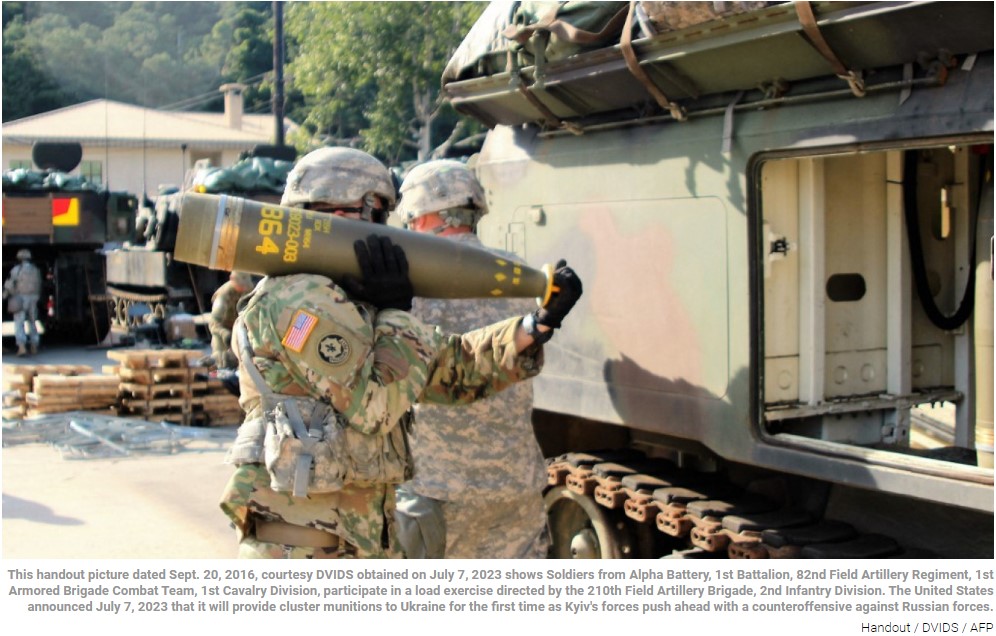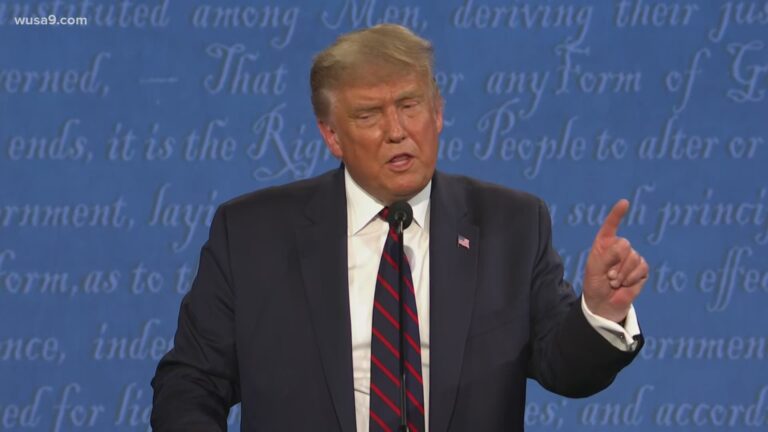
Cluster bomb-AFP
STRATEGIC ASSESSMENT. Washington’s decision to supply Ukraine with cluster munitions is an “act of desperation” that will have no effect on Moscow’s campaign in Ukraine, Russia’s Foreign Ministry said on Saturday.
“It is an act of desperation and shows weakness against the backdrop of the failure of the much-touted Ukrainian counteroffensive,” ministry spokeswoman Maria Zakharova said in a statement.
“The latest ‘miracle weapon’ which Washington and Kyiv are betting on, without thinking about the grave consequences, will have no effect on the special military operation,” she said, using Russia’s official term for its campaign in Ukraine.
Zakharova said the decision showed the “aggressive anti-Russian course taken by the U.S., which is aimed at prolonging the conflict in Ukraine as much as possible.”
She also said Ukraine’s promises to use the controversial ammunition responsibly “are not worth anything.”
Russia itself uses cluster bombs in Ukraine but they are banned in many parts of the world.
Humanitarian groups have strongly condemned the U.S. decision to supply cluster munitions, which can go undetonated and potentially endanger civilians for years to come.
U.S. President Joe Biden admitted that supplying Ukraine with weapons capable of covering several football fields with hundreds of multiple small explosives was “a difficult decision.”
Cluster munitions should not be used by Ukraine “under any circumstances,” Spanish Defense Minister Margarita Robles said on Saturday. Her comment came a day after the US announced that it would send the controversial ordnance to Ukraine, amid a shortage in conventional shells.
“Spain, based on the firm commitment it has with Ukraine, also has a firm commitment that certain weapons and bombs cannot be delivered under any circumstances,” Robles told reporters after a rally in Madrid. Spain says “no to cluster bombs and yes to the legitimate defense of Ukraine, which we understand should not be carried out with cluster bombs,” Robles added, according to Reuters.
The White House announced on Friday that President Joe Biden had authorized the delivery of an unspecified number of dual-purpose improved conventional munitions (DPICM) to Kiev, based on the “unanimous” recommendation of the president’s national security team.
The shells, which can be fired from Ukraine’s NATO-supplied 155mm artillery, scatter many small ‘bomblets’ over a wide area, some of which fail to immediately explode and pose severe risks to civilians for years after fighting ends. Cluster munitions are banned by more than 120 countries, although the US, Ukraine, and Russia are not parties to the ban.
Biden’s decision was also criticized by Germany and the UK. However, US National Security Adviser Jake Sullivan told reporters on Friday that sending these weapons was necessary to “bridge” the gap until Kiev’s Western backers could increase production of conventional 155mm shells.
Speaking to CNN later on Friday, Biden was more blunt. “It was a very difficult decision on my part,” he said, claiming that he signed off on the supply because “the Ukrainians are running out of ammunition.”
Last year, then White House Press Secretary Jen Psaki described Russia’s alleged use of similar ordnance as “potentially a war crime.”
Moscow was dismissive of the news. Cluster bombs are “yet another ‘Wunderwaffe’ [wonder weapon] Washington and Kiev are betting on, without thinking about the harsh consequences,” Russian Foreign Ministry spokeswoman Maria Zakharova said at a press briefing on Friday. “Through the cluster munition deliveries, Washington de-facto becomes an accomplice in mining [Ukraine’s] territory and will share full responsibility for the deaths… of both Russian and Ukrainian children.”
Canada and the UK have become the latest Western nations to voice concern over US President Joe Biden’s decision to provide cluster munitions to Ukraine. Both countries have reaffirmed their commitment to a UN agreement banning the armaments and spoken against employing them in the current conflict with Russia.
“We do not support the use of cluster munitions,” the Canadian government told the national broadcaster CTV on Saturday. Ottawa is “committed to putting an end to the effects cluster munitions have on civilians – particularly children,” the statement read.
Separately, British Prime Minister Rishi Sunak told journalists that London also does not support employing cluster bombs. “The UK is a signatory to a convention that prohibits production or use of cluster munitions and discourages their use,” he explained, adding that London would continue to support Ukraine through other means. Canada said it was “fully compliant” with the UN convention banning the weapons, which was adopted in 2008. More than 110 nations have joined the agreement since then.
Cluster bombs carry smaller explosive submunitions that are released in flight and scattered across a target area, and are typically used against personnel and lightly armored vehicles. They also tend to leave behind undetonated ‘duds’ that can remain in former conflict zones for decades.
“People continue to die because of the use of this type of weapon,” Earl Turcotte, a veteran Canadian diplomat and a disarmament activist, told CTV. The former official, who led the Canadian delegation at the talks on the 2008 convention on cluster munitions, urged Ottawa to specifically “speak out” against the US decision.
“The point must be made clearly and forcefully that any immediate military benefit cluster munitions might afford would be nullified and far exceeded by their humanitarian impact on the Ukrainian citizenry over the longer term,” Turcotte said. Washington, however, took a different position on Saturday. When asked about the potential harm to the civilian population the US-made bombs could inflict in Ukraine, a senior Pentagon official said that “the worst thing for civilians in Ukraine is for Russia to win.”
The move announced by the US this week has sparked concern among various nations, including some of America’s allies, as well as at the UN. On Friday, Germany reaffirmed its commitment to the UN treaty banning cluster munitions. Austria also warned that the West would be sending the wrong signal by delivering such ordnance to a conflict zone, while Spain said that it should not be used by Ukraine “under any circumstances.”
Moscow has condemned Washington’s decision as an act of “desperation” that would not affect its ongoing military campaign, but would have dire consequences for non-combatants. The US will “share full responsibility for the deaths… of both Russian and Ukrainian children,” Russian Foreign Ministry spokeswoman Maria Zakharova stated on Saturday.







